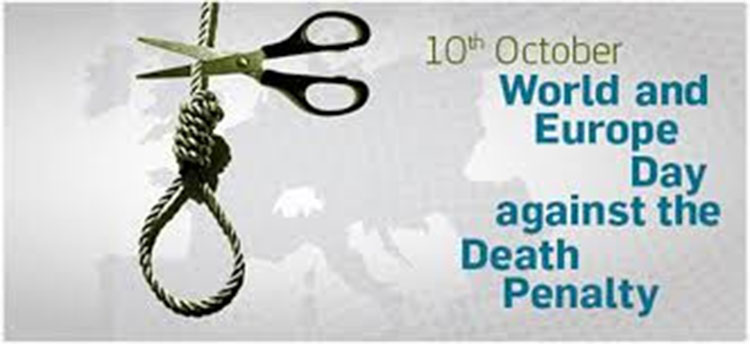Joint Declaration by the European Union High Representative for Foreign Affairs and Security Policy, Federica Mogherini, and the Secretary General of the Council of Europe, Thorbjørn Jagland, on the European and World Day against the Death Penalty, 10 October 2017:
On the European and World Day against the Death Penalty, the Council of Europe and the European Union reaffirm their strong and unequivocal opposition to capital punishment in all circumstances and for all cases. The death penalty is incompatible with human dignity. It constitutes inhuman and degrading treatment, does not have any proven deterrent effect and allows judicial errors to become irreversible and fatal.
Abolition of the death penalty is a distinctive achievement in Europe, with all European Union and Council of Europe Member States having abolished it. Abolition of the death penalty in law or in practice is a prerequisite for membership of the Council of Europe and the absolute ban on the death penalty under all circumstances is inscribed in the Charter of Fundamental Rights of the European Union. Reintroduction of the death penalty by any member State would be contrary to the fundamental values and obligations underlying both Organisations. The Council of Europe and the European Union call on all European States to ratify the protocols to the European Convention on Human Rights which prohibit the death penalty. They urge Belarus, the only European country still applying the death penalty, to introduce a moratorium as a decisive step to bringing the country closer to pan-European legal standards.
The Council of Europe and the European Union reiterate their strong call on all the countries of the world still carrying out the death penalty to establish without delay a moratorium on executions as a first step towards abolition, and to commute remaining death sentences to prison terms. All those countries remain in any event bound by international law and must thus refrain, inter alia, from carrying out executions on minors, on persons with mental illness or intellectual disabilities, or in cases other than for the most serious crimes (notably, executions shall not be carried out on persons convicted of economic or drug trafficking offences). Also, no execution should take place without appropriate information being communicated to the individual’s next-of-kin and lawyers.
The Council of Europe and the European Union welcome the global trend towards the abolition of capital punishment, which has already resulted in more than two-thirds of all countries having abolished the death penalty in law or in practice. This global momentum must be seized to bring on board all remaining countries still carrying out the death penalty. The Council of Europe and the European Union will continue their engagement in the United Nations to support the abolitionist global trend. They will employ all available means to combat torture and other grave human rights abuses in relation to the imposition and application of the death penalty.




